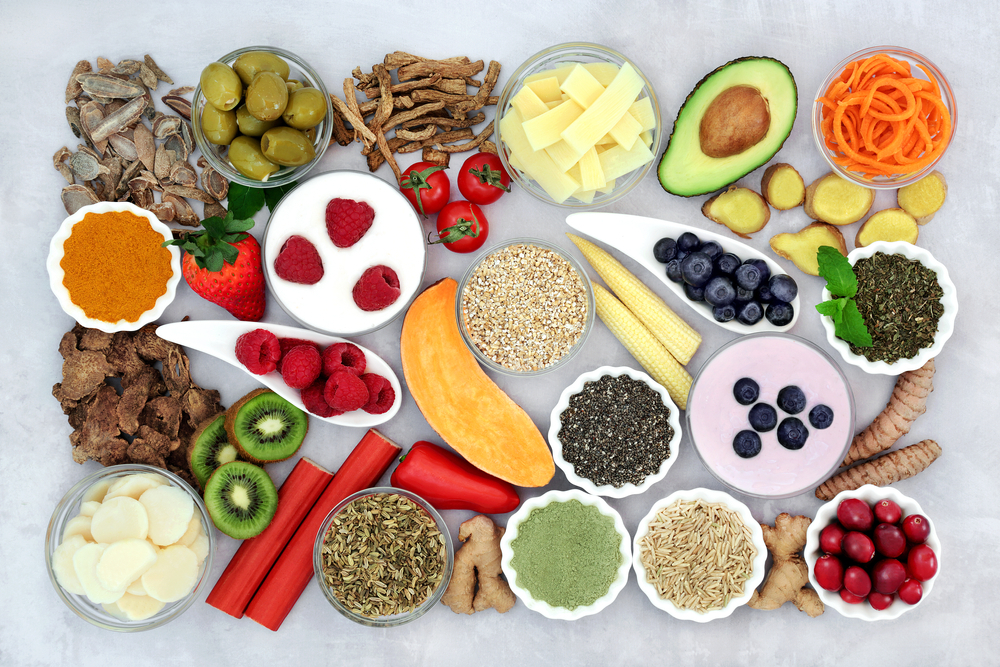If you suffer from Irritable Bowel Syndrome, you should know that there are a number of foods you can eat to help alleviate the symptoms. These foods include whole grains, lean meat, and nuts. They can also help you improve your digestion.
Nuts
If you suffer from Irritable Bowel Syndrome, a good diet should include high fibre foods. These include foods like flaxseeds and oats. Also, avoid foods that cause gas and bloating. Those with diarrhea should also avoid foods that contain high amounts of sugar alcohols. This type of carbohydrate is difficult to digest and can irritate the small intestine. The result can be increased symptoms of bowel symptoms, including bloating and abdominal pain.
While there are several dietary approaches to treat IBS, it’s important to work under the supervision of a dietitian. These professionals can help you make a sustainable change and avoid nutrient deficiencies.
Lean meats
When it comes to irritable bowel syndrome, lean meats are a great way to help your digestive system. In addition to being low in fat, lean meats contain plenty of protein and are easy to digest. They also do not ferment or cause flatulence like many other meats do.
Lean meats contain protein that does not ferment in the gut, which means less gas. Another great source of protein are eggs. Hard-boiled, poached, and omelets are all safe options for those with IBS. Eating fish that is rich in omega-3 fatty acids is also a great idea. Omega-3 fatty acids are known to help with inflammation and reduce the risk of IBS flare-ups. Low-FODMAP fruits and vegetables are also good options for people with IBS.
Whole grains
Whole grains are high in fiber and can help move food more quickly through the digestive tract. Additionally, they can reduce cholesterol and blood pressure. They also reduce the risk of heart disease, diabetes, and obesity. Some people, however, may have problems with bloating and gas from whole-wheat flour. To help reduce these problems, make sure to drink plenty of water throughout the day.
If you are sensitive to FODMAPs, you should limit your intake. Try eating more cooked vegetables and fruits, as they will break down more easily. You can also try foods such as sourdough bread, which contains live cultures that help the bread’s digestive system. This bread will have a lower FODMAP content than regular bread because it has been fermented longer.
Fruits with high fructose content
There are numerous foods you can eat to help prevent Irritable Bowel Syndrome. These include foods that are high in fructose (a sugar found in many foods) and cruciferous vegetables. While you can still eat these foods if you are not suffering from IBS, these vegetables can irritate the intestines and cause gas, bloating, and cramping. You should also avoid consuming alcoholic beverages and any type of carbonated drinks.
In addition to changing your diet, your doctor may prescribe medications to reduce small intestinal bacterial overgrowth. You should also talk with a dietitian or nutritionist to create an appropriate diet plan. Dietitians can help you identify foods that make symptoms worse.
Whole grains lower cholesterol
Whole grains are an excellent source of fiber and nutrients. They contain more dietary fiber than refined grains, which slows down the breakdown and absorption of starch in the endosperm. Studies have shown that whole grains lower blood cholesterol and sugar levels in a number of ways. The USDA has dietary guidelines that encourage the consumption of whole grains.
However, there are certain risks with whole grains. For example, whole grains contain high amounts of amylopectin, a type of molecule found in starch. Amylopectin increases blood sugar levels quickly, which is dangerous for the body. Eating too much of this molecule can lead to insulin resistance and high cholesterol.
High-fiber foods cause diarrhea
High-fiber foods help some people with IBS, but they can also make the condition worse. Although fiber helps the body move food more quickly, too much of it can make diarrhea more severe. Generally, a high-fiber diet is healthy and reduces the risk of heart disease and diabetes. For women, the recommended amount of fiber per day is 21 to 25 grams. For men, it is between 30 and 38 grams. High-fiber foods are vegetables, whole grains, nuts, and raisins. Also, try to avoid consuming foods that contain gluten and lactose, which are known to cause IBS-related diarrhea.
Other foods that contain high-fiber content are legumes and fruit. However, these foods are also high in fructose, which can trigger symptoms. If you’re suffering from IBS, it’s a good idea to rinse legumes in fresh water first to eliminate gas and bloating. In addition to fiber, you need to avoid foods with sugar alcohols, including chewing gum and sugar substitutes.
Low-fiber foods cause bloating
When you have a high-fiber diet, you’re more likely to have an upset stomach. You can also reduce your intake of some foods. For instance, yogurt and kefir are low-fiber, as are milk, pudding, and cream. You can also replace white rice and other refined grains with whole grains, such as bran muffins and oatmeal. These foods contain less than 2 grams of fiber per serving.
Soluble fiber is a type of fiber that dissolves in water and helps the body digest food easier. Insoluble fiber, on the other hand, remains intact and helps to create bulk in the stool. It also stimulates movement through the digestive tract. Insoluble fiber is found in whole plant-based foods, such as cereal, beans, and nuts. It’s important to note that each type of fiber affects different people.

